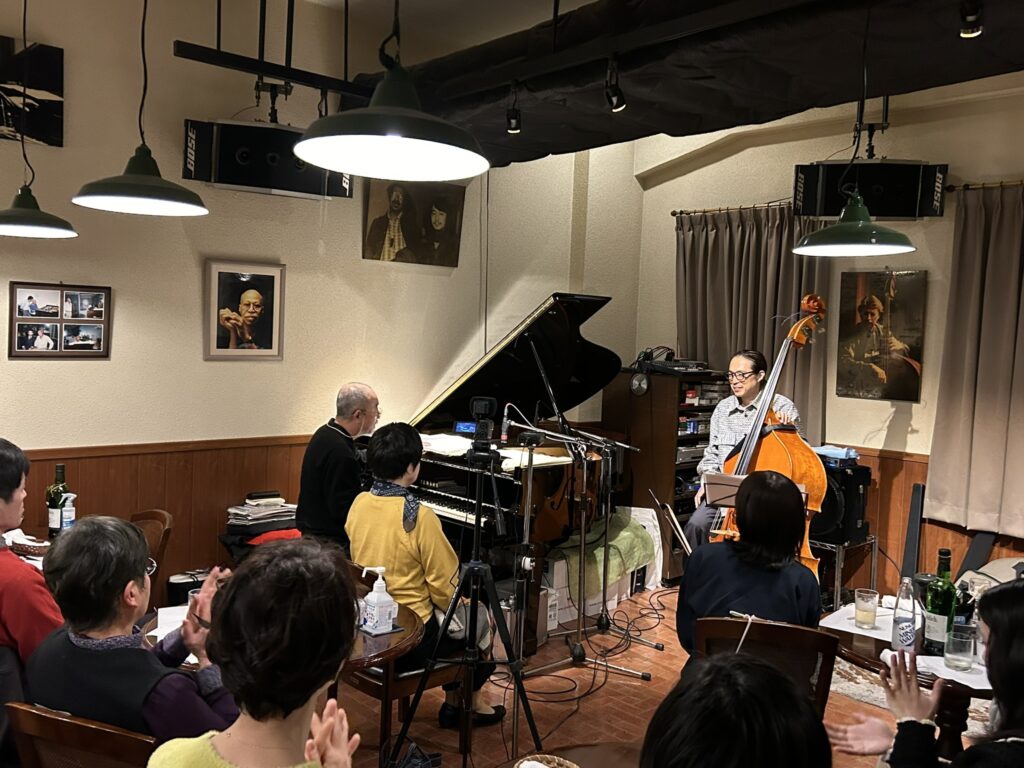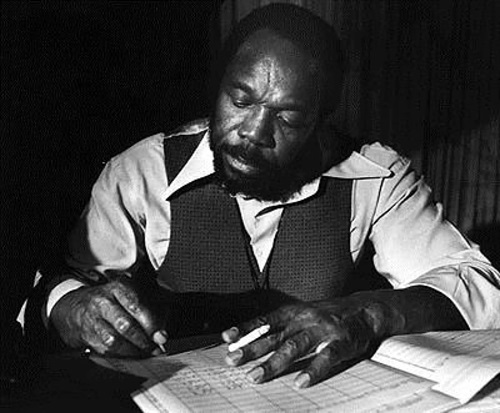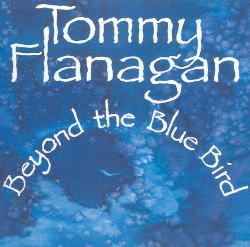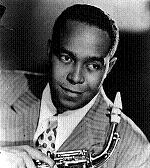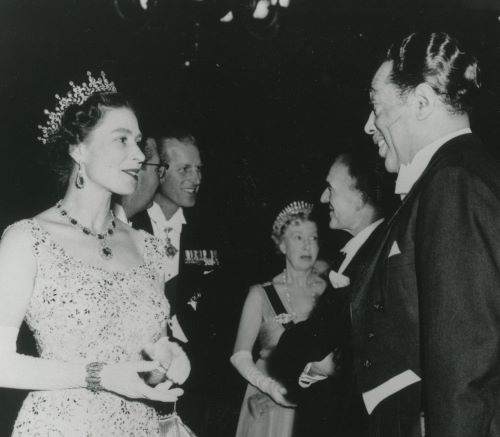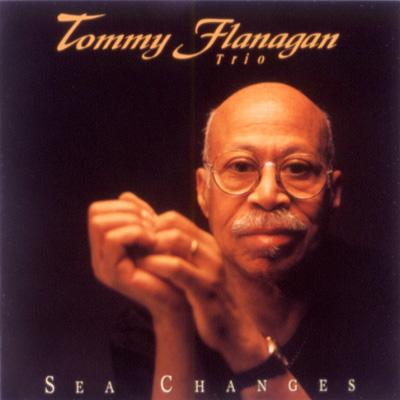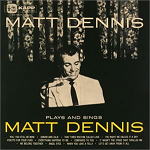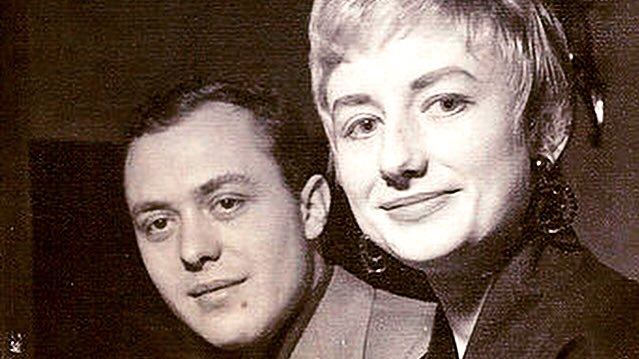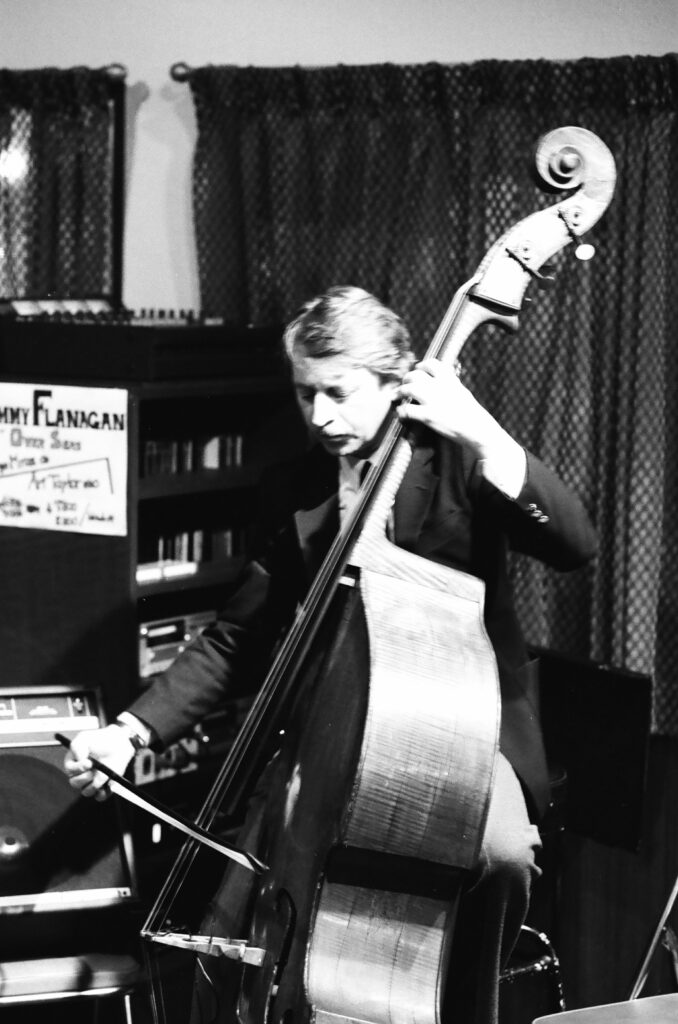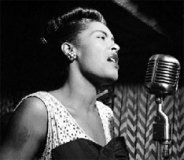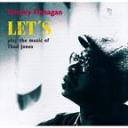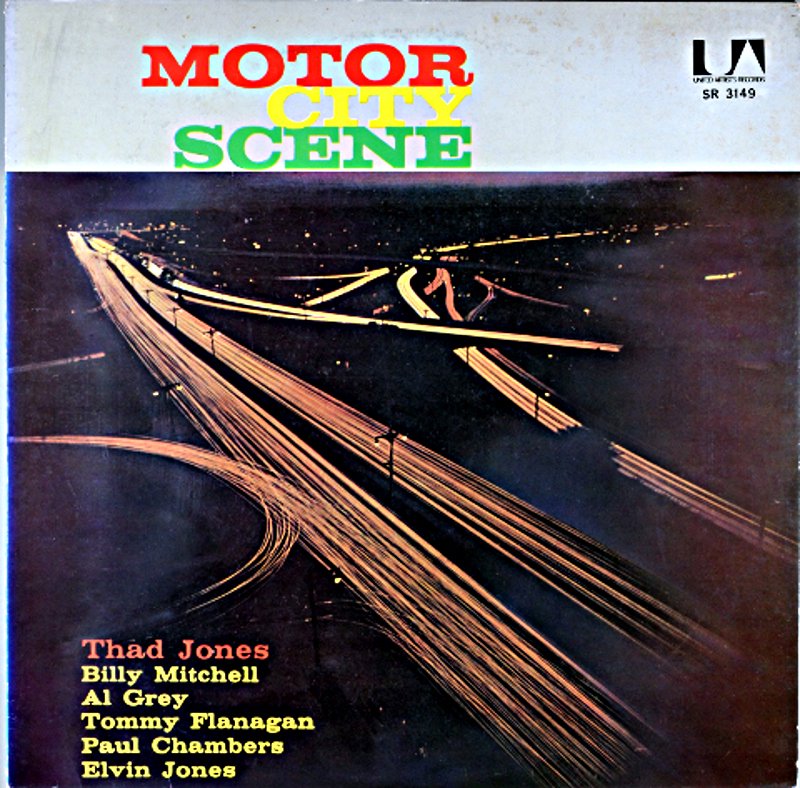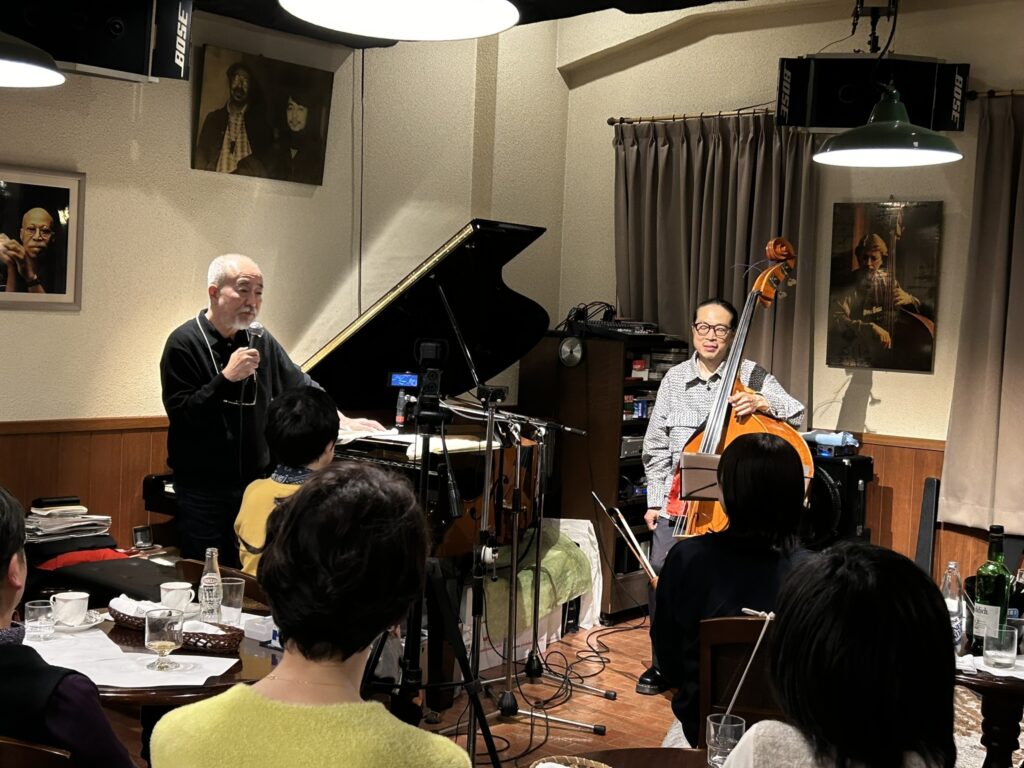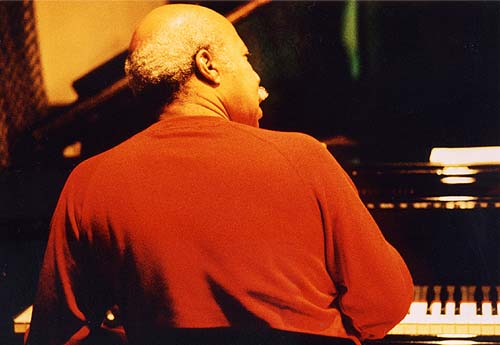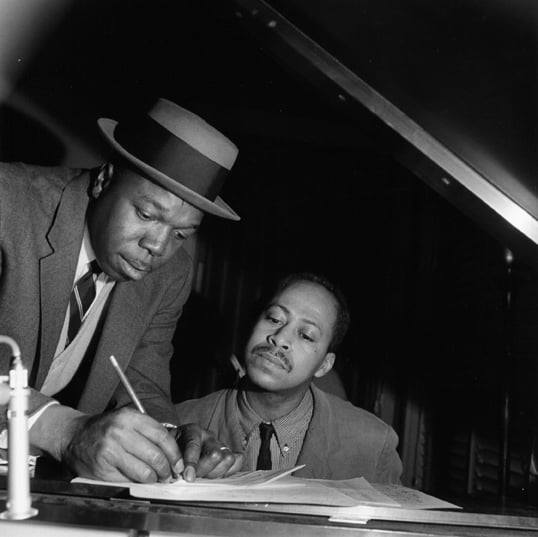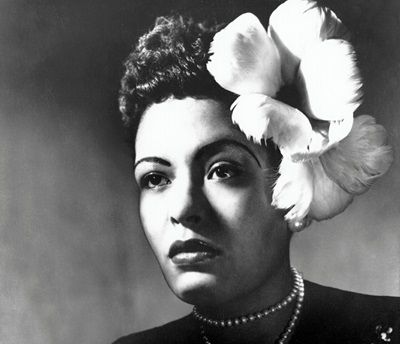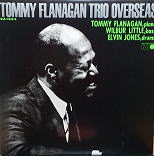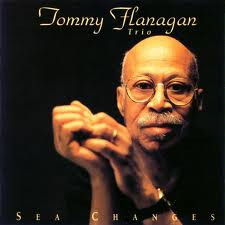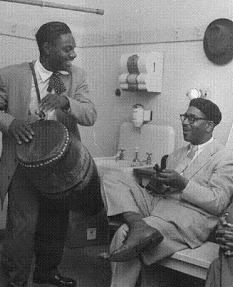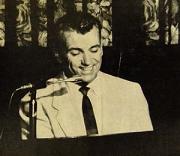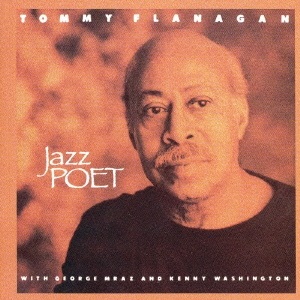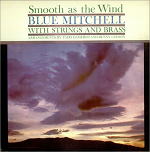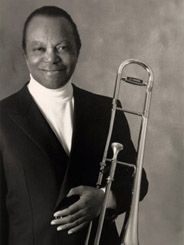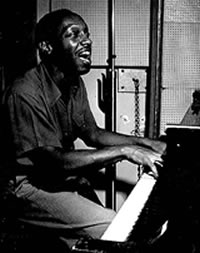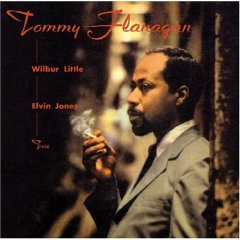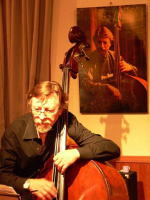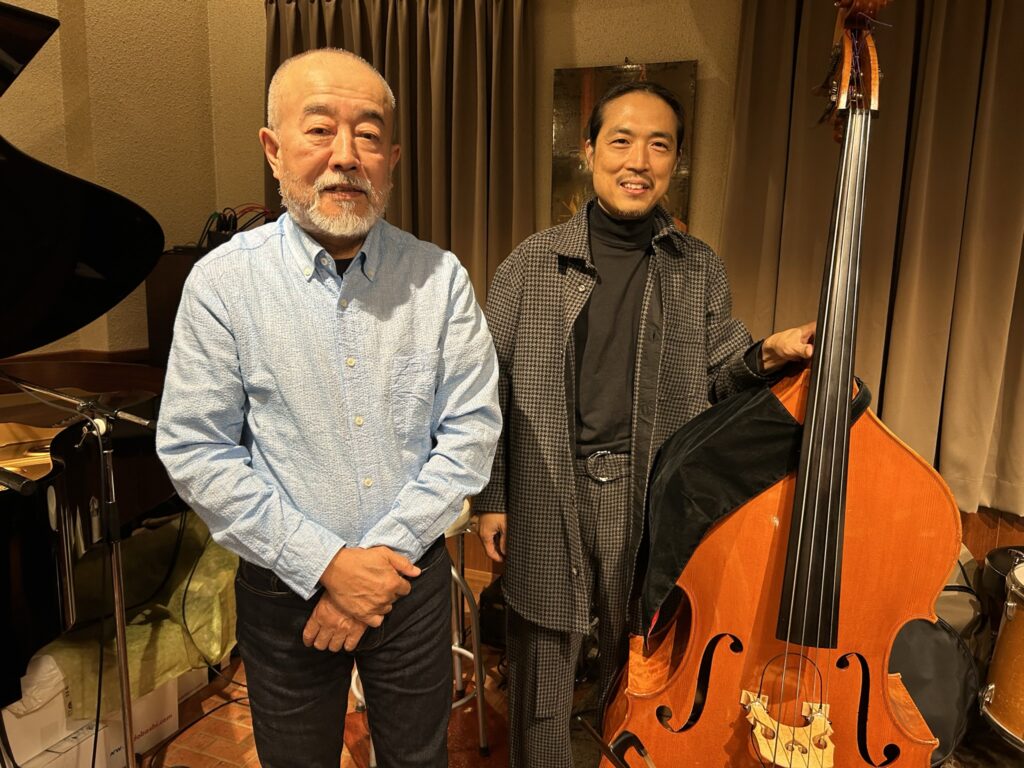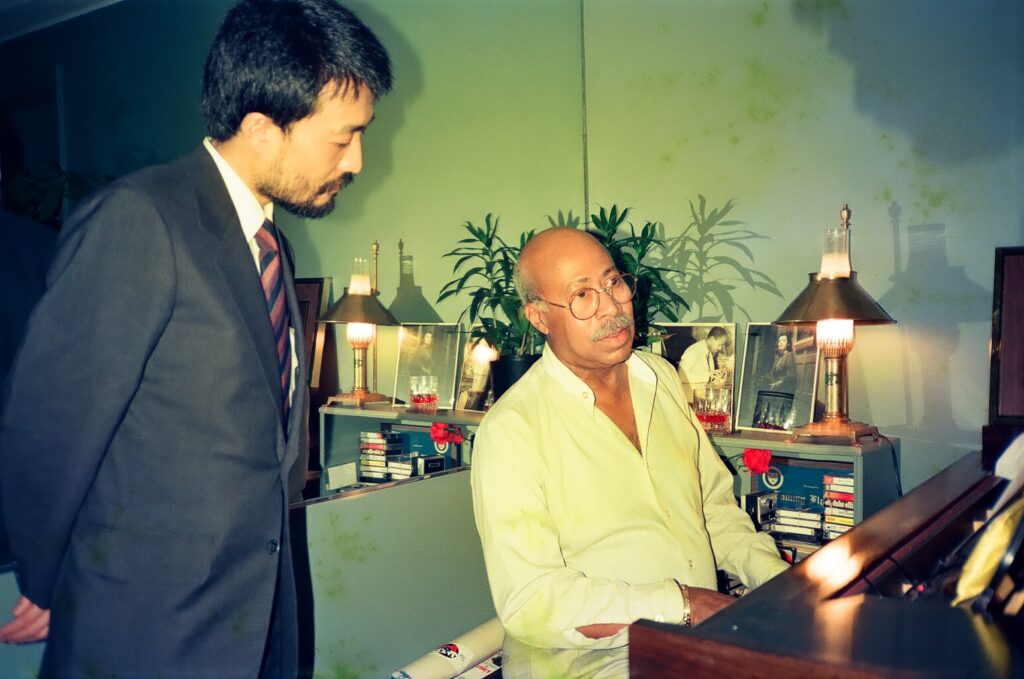
(日本語版はこちら)
Pianist and Jazz Club OverSeas owner Hisayuki Terai has honored his mentor, piano master Tommy Flanagan (1930-2001), by performing special concerts featuring Flanagan’s iconic repertoire every year in the months of his birth and passing. The 47th tribute to Flanagan took place on November 15, 2025.
Performance by Hisayuki Terai on piano, Zaiko Miyamoto on bass
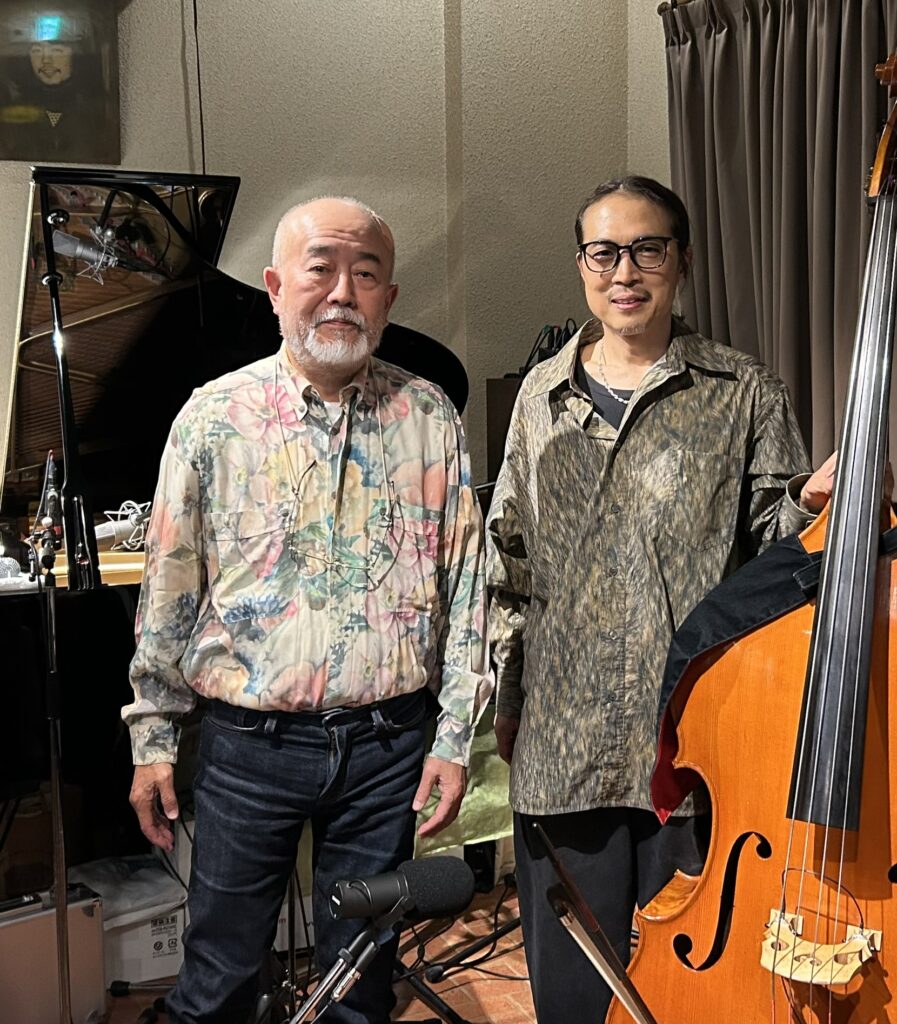
<1st Set>
1. Epistrophy (Thelonious Monk)
The concert opens with the Monk classic—often used as his closing theme. For Terai, however, the meaning of the piece is quite different. He vividly remembers Flanagan’s mind-blowing performance of Epistrophy here at Jazz Club OverSeas. What served as “an ending” for Monk has become “a beginning” for Terai—a piece that marks moving forward after Flanagan’s passing.
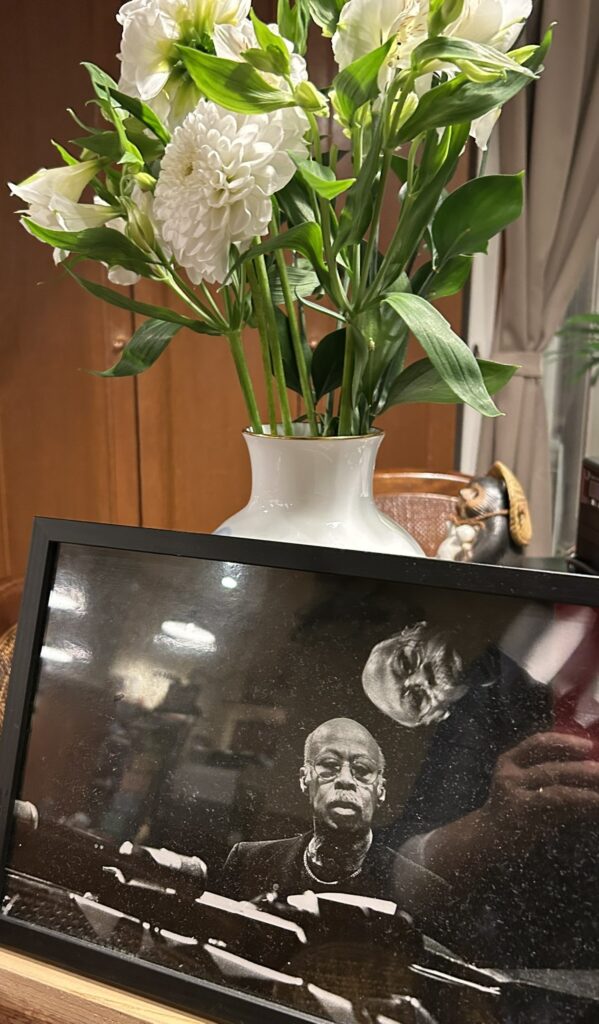
2. Beyond the Blue Bird (Tommy Flanagan)
“Blue Bird” refers to Detroit’s legendary jazz club, the Blue Bird Inn, where young Flanagan played nightly as part of the house band with Thad Jones and Billy Mitchell. The tune carries a bluesy nostalgia—a birthplace of Detroit Hard Bop, and Flanagan’s one and only ideal jazz club.
3. Medley: Embraceable You (George Gershwin)
~Quasimodo(Charlie Parker)
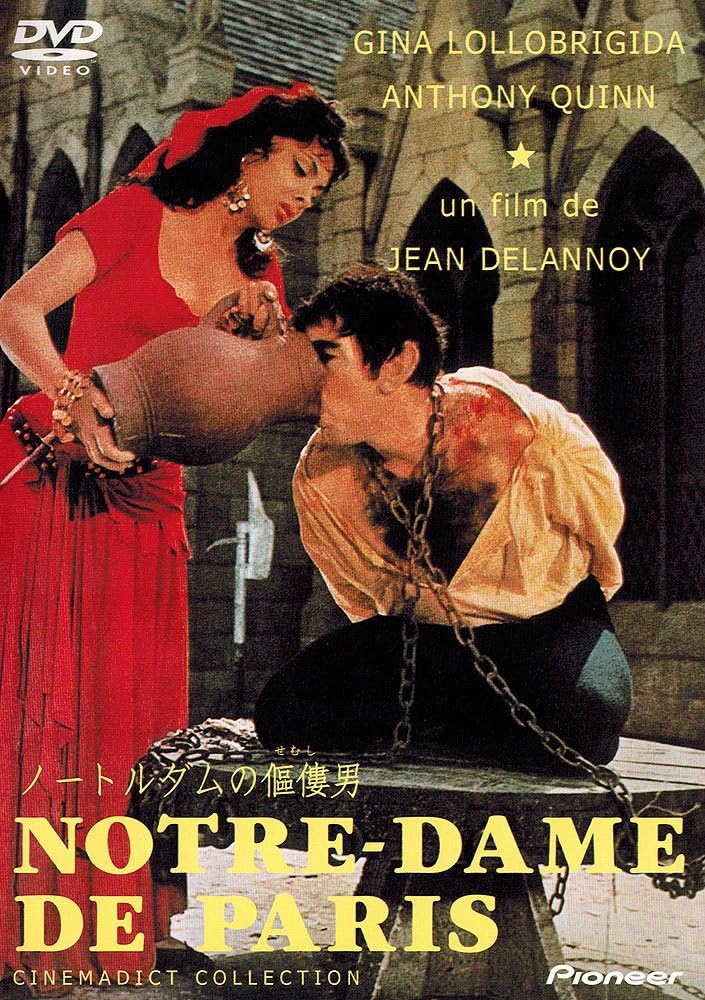
Flanagan’s live medleys were famous, though sadly most were never recorded due to licensing issues.
This unusual pairing links Gershwin’s tender standard with Parker’s bebop line “Quasimodo,” based on the same changes. As the keys shift, the emotional landscape changes—blurring the line between “beauty” and “ugliness.”
Flanagan’s interpretation illuminates Parker’s message: true beauty comes from the soul, not from outward appearances.
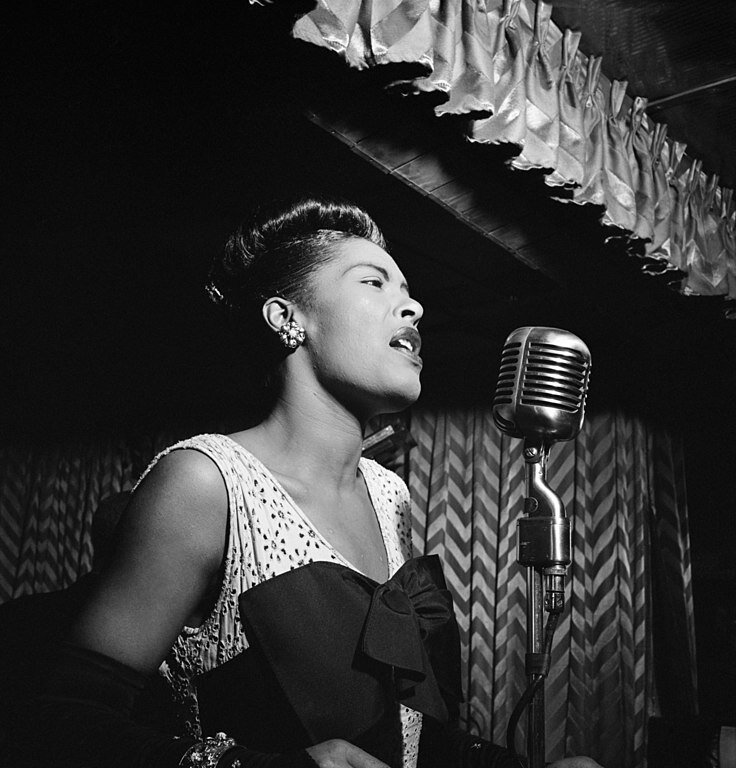
4. Good Morning Heartache (Irene Higginbotham)
A 1946 hit for Billie Holiday. Holiday—Flanagan’s idol and a profound musical influence—stood at the center of his concept of storytelling in jazz. He often encouraged Terai to study her closely, and over the decades Holiday’s intimate, narrative spirit has deeply taken root in Terai’s own playing.
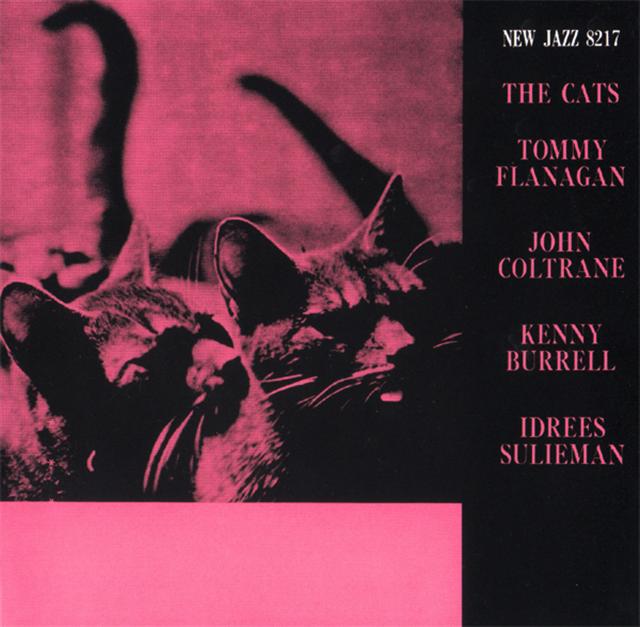
5. Minor Mishap (Tommy Flanagan)
First recorded on The Cats (1959, New Jazz). The other musicians had to play it at sight in what was effectively a one-take session. Flanagan treasured the piece afterward, performing it often as a bold example of Detroit Hard Bop. It remains one of Terai’s signature tunes.

6. Dalarna (Tommy Flanagan)
An early Flanagan original from Overseas (1957, Metronome), one of his early masterpieces recorded during J.J. Johnson’s Swedish tour. The region of Dalarna is known for its beautiful forests, lakes, and its iconic wooden horses—one of which sat on tonight’s piano.
The piece blends Impressionist colors, the influence of Billy Strayhorn, and Flanagan’s trademark elegance with subtle key shifts.
Flanagan rarely revisited the tune until Terai revived it on his own Dalarna album, which inspired Flanagan to rerecord it on Sea Changes (1996). Right after the session, he phoned Terai—bursting with excitement—to tell him the news.
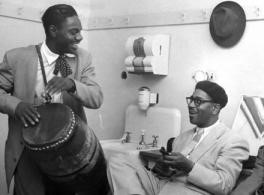
7. Tin Tin Deo (Chano Pozo, Gill Fuller, Dizzy Gillespie)
An Afro-Cuban jazz classic born from Chano Pozo’s chant-like melodies and rhythms.
Flanagan excelled at transforming big-band material into trio arrangements, and his version blends the soulful depth of Afro-Cuban music with bebop sophistication.
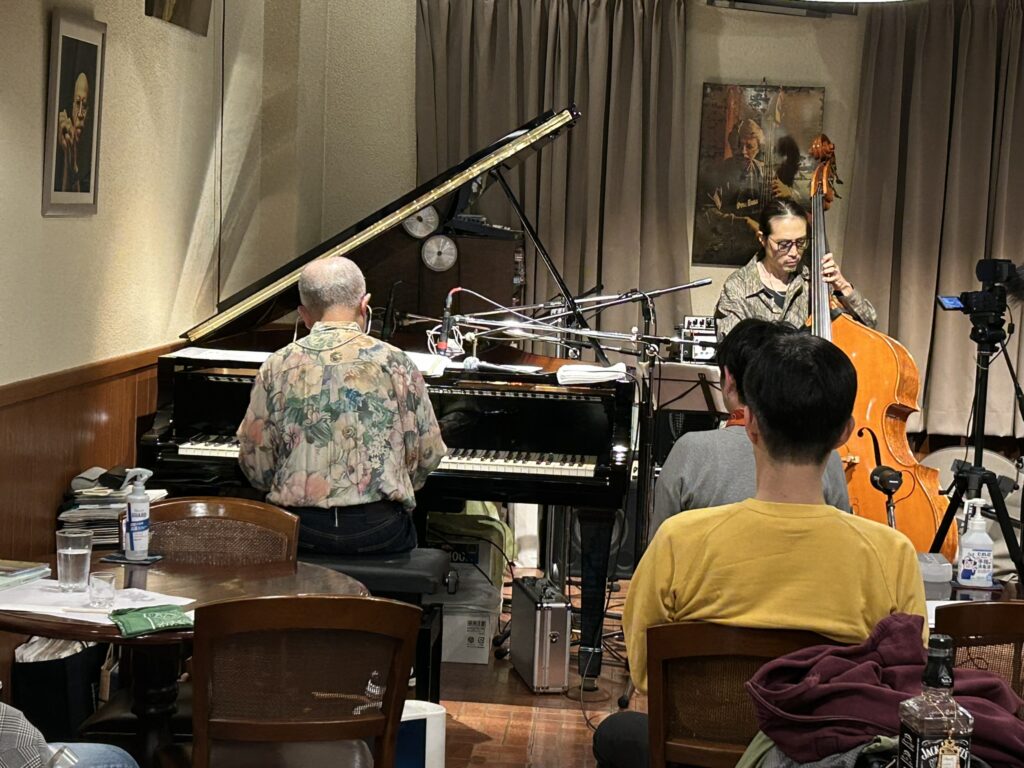
<2nd>
1. That Tired Routine Called Love (Matt Dennis)
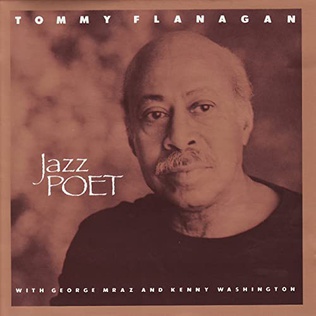
A witty love song written by Matt Dennis, a singer-pianist, composer, and arranger, best known for penning numerous hit songs for Frank Sinatra. His compositions, while pleasant to the ear, are often tricky to play and have been cherished by jazz artists. This tune, with its many modulations, is no exception. Trombone master J.J. Johnson recorded this piece with Flanagan for the album First Place (Columbia, 1957). Over 30 years later, Flanagan included the song on his own album, Jazz Poet (Timeless, 1989), and the arrangement was updated with subsequent live performances. Terai performs the evolved version of the arrangement.
2. Smooth As the Wind (Tadd Dameron)
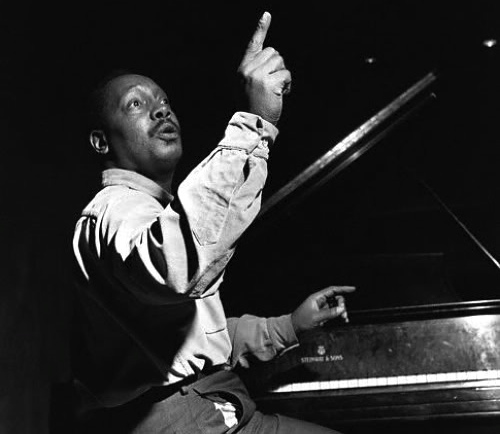
One of Flanagan’s favorite Tadd Dameron compositions. With a perfect balance of strength and elegance—the hallmark of Dameron’s sound—the harmony unfolds like flowers blooming one after another.
Dameron wrote this piece during his time in a federal prison hospital in Lexington, Kentucky, for trumpeter Blue Mitchell’s eponymous album, Smooth as the Wind (Riverside, 1960), in which Flanagan also participated. The song flows like a poetic narrative, and the artistry in its arrangement reflects the enduring legacy of Tommy Flanagan.
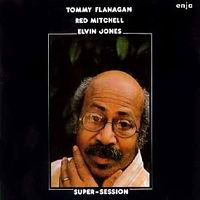
3. Rachel’s Rondo (Tommy Flanagan)
The vibrant piece, dedicated to his elder daughter, Rachel, was recorded on the album Super Session (Enja, 1980), featuring great Red Mitchell (bass) and Elvin Jones (drums). Although Flanagan rarely performed the tune on live, the piece remains a favorite among our patrons at OverSeas.
4. If You Could See Me Now (Tadd Dameron)

Dameron wrote this song in 1946 for the then up-and-coming vocalist Sarah Vaughan. Flanagan loved Dameron’s writing because “his music has a built-in orchestral sound,” and he adapted Vaughan’s phrasing from her 1981 remake with the Count Basie Orchestra to heighten that orchestral feel. Terai regrets that Flanagan never recorded the song—perhaps because Terai had already done so on his album, Flanagania.
5. Eclypso (Tommy Flanagan)
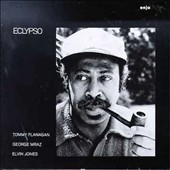
A popular calypso-flavored original. Terai identifies Bud Powell’s So Sorry Please as its harmonic source. During Terai’s first extended stay in New York at Flanagan’s invitation, this was the piece Flanagan chose for the final night at the Village Vanguard—dedicating it to him from the stage.
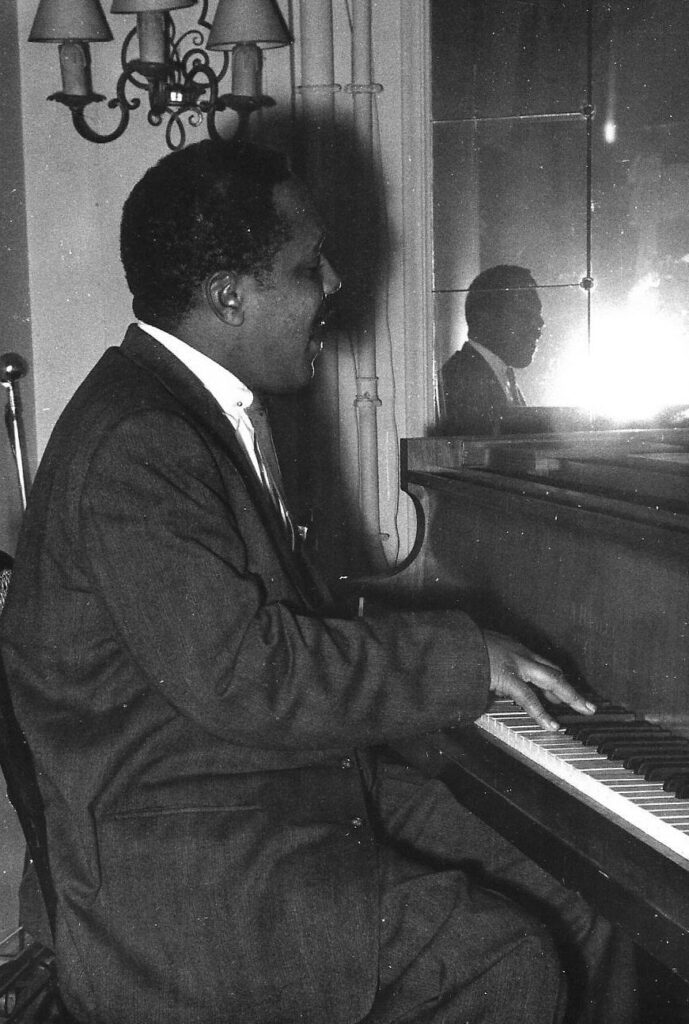
6. I’ll Keep Loving You (Bud Powell)
A quietly intense ballad believed to have been written by the innovative bebop pianist Bud Powell for his singer friend Daly Fern. Flanagan’s interpretations always preserved Powell’s character while adding a layer of refined beauty. Terai performs it here with deep, enduring affection for his mentor.
7. Our Delight (Tadd Dameron)
Another Dameron masterpiece that Flanagan often used as a concert closer, though unfortunately few trio recordings of it exist.
Today, Terai is likely the only pianist who can recreate the thrilling, bop-driven arrangement Flanagan used onstage. His interplay with bassist Zaiko Miyamoto is always a highlight.
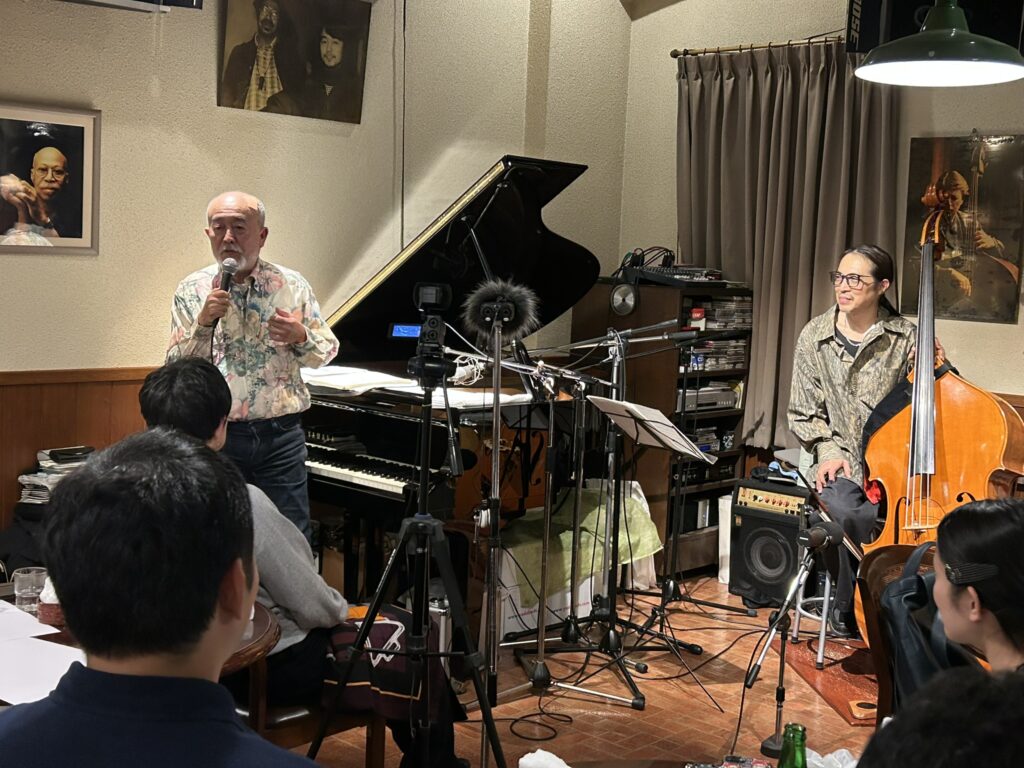
Encore:
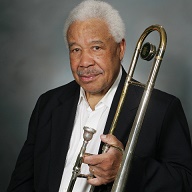
With Malice Toward None (Tom McIntosh)
A spiritual signature for both Flanagan and Terai—and one of the most requested pieces at OverSeas.
The title echoes Abraham Lincoln’s famous quote, while the melody draws on the hymn Jesus Loves Me. Its message feels especially timely today.
During the piece’s creation, McIntosh incorporated many ideas from his neighbor and friend, Flanagan—which may be why Flanagan’s interpretation remains unmatched among all existing recordings.
Ellingtonia
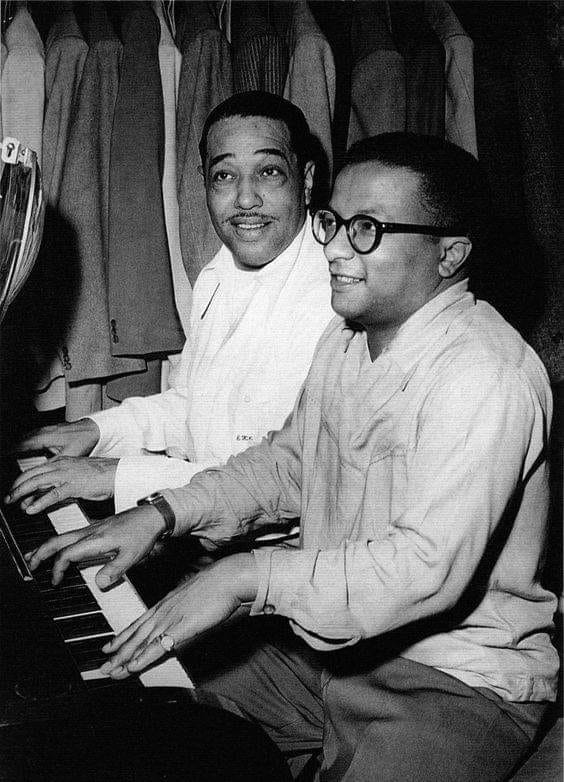
Chelsea Bridge (Billy Strayhorn)
A dreamy masterpiece by Duke Ellington’s musical partner, Billy Strayhorn, whom Tommy Flanagan deeply admired. Though he recorded it only twice as a leader—on Overseas (1957) and Tokyo Recital (1975)—he revisited the piece several other times in various settings.
Late in life, he planned a full Strayhorn songbook album, a project sadly left unfinished.
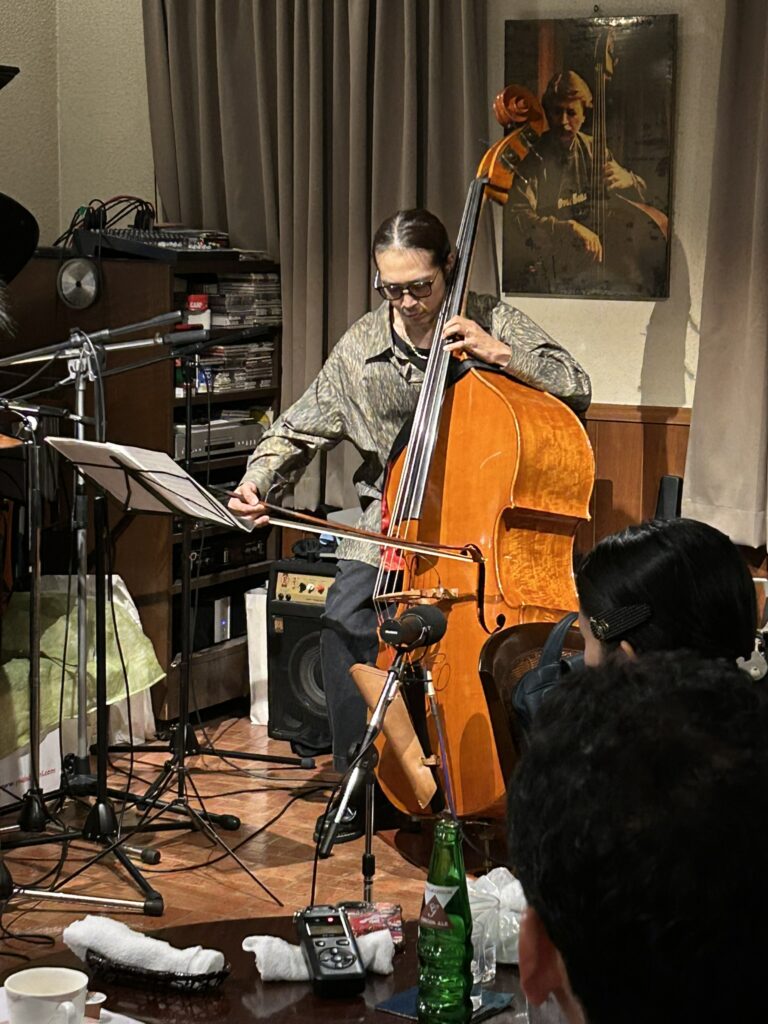
Passion Flower (Billy Strayhorn)
A signature piece for bassist George Mraz during the Flanagan Trio era. In this tribute concert, Zaiko Miyamoto beautifully carried on the tradition with his own remarkable bow work. Even after Mraz left Flanagan’s trio, he continued performing the piece, eventually including it on his album My Foolish Heart (Milestone, 1995).
Black & Tan Fantasy (Duke Ellington)
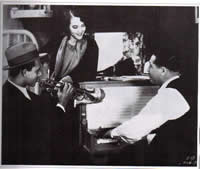
In his later years, Flanagan increasingly explored pre-bebop repertoire connected to his childhood. This iconic 1927 Ellington piece—famous from the Cotton Club era and emblematic of the Harlem Renaissance sound—reflects the deep roots of Black music that Flanagan cherished and championed.
When Terai performed it for him during Flanagan’s final visit to OverSeas, Flanagan praised the rendition warmly—a memory Terai treasures.
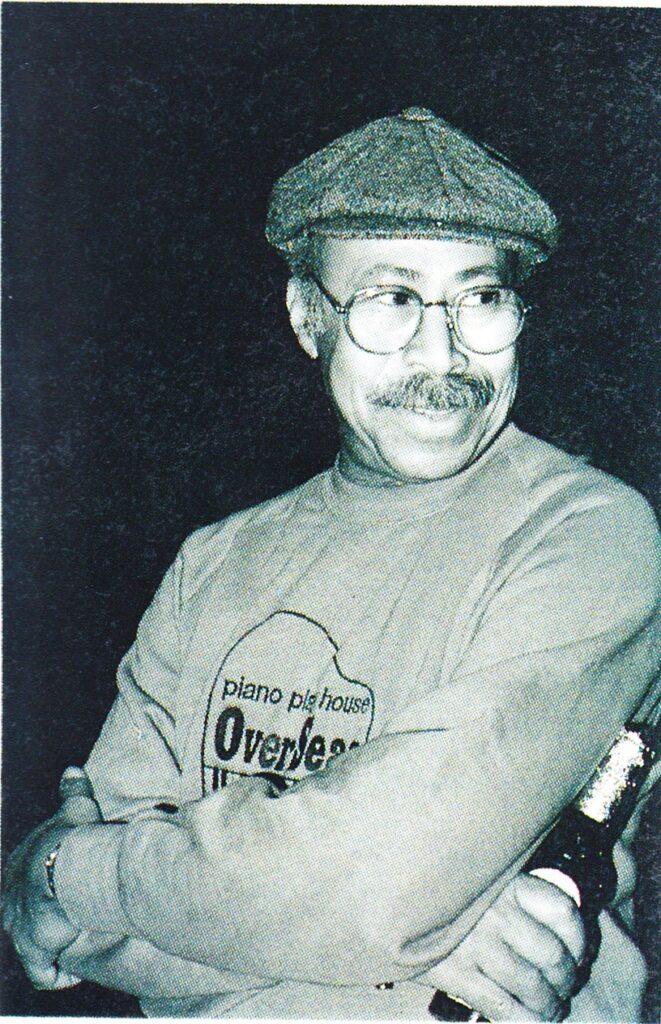
The 47th Tommy Flanagan Tribute welcomed many guests from various places, allowing us once again to remember and celebrate the remarkable presence of great master Tommy Flanagan in his prime.
The next tribute to Tommy Flanagan concert is scheduled for March 2026. We sincerely look forward to welcoming you.
Text by Tamae Terai
